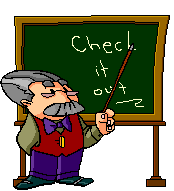-- David H. Jonassen

What is constructivism theory?
theory that people construct their own understanding and knowledge of the world, through experiencing things and reflecting on those experiences. When learners encounter something new, they reconcile it with previous knowledge and experience. They may change what they believe, or they may discard the new information as irrelevant.
The principal of constructivism theory...
Constructed:
Students come to learning situations with already formulated knowledge, ideas, and understandings. Students will integrate new experiences and interpretations to construct their own personal meaning with this previous knowledge.
Active:
The student is the person who creates new understanding for her/himself. The teacher guides knowledge, but allows the students to experiment, manipulate objects, ask questions and try things that don't work. Students also help set their own goals and means of assessment.
Reflective:
Teachers should create opportunities for students to question and reflect on their own learning processes, either privately or in group discussions. The teacher should also create activities that lead the student to reflect on his or her prior knowledge and experiences.
Collaborative:
The constructivist classroom relies heavily on collaboration among students because students learn about learning not only from themselves, but also from their peers. When students together review and reflect on their learning processes, they can pick up strategies and methods from one another.
Inquiry- or Problem-Based: The main activity in a constructivist classroom is solving problems. Students use inquiry methods to ask questions, investigate a topic, and use a variety of resources to find solutions and answers.
Evolving:
Students have knowledge that they may later see as incorrect, or insufficient to explain new experiences. As students explore a topic or problem, they draw conclusions, and, as exploration continues, they revisit those conclusions and modify them to support new knowledge or experiences
source from: .http://www.quasar.ualberta.ca/techcur/theory/constructivism.htm
No comments:
Post a Comment